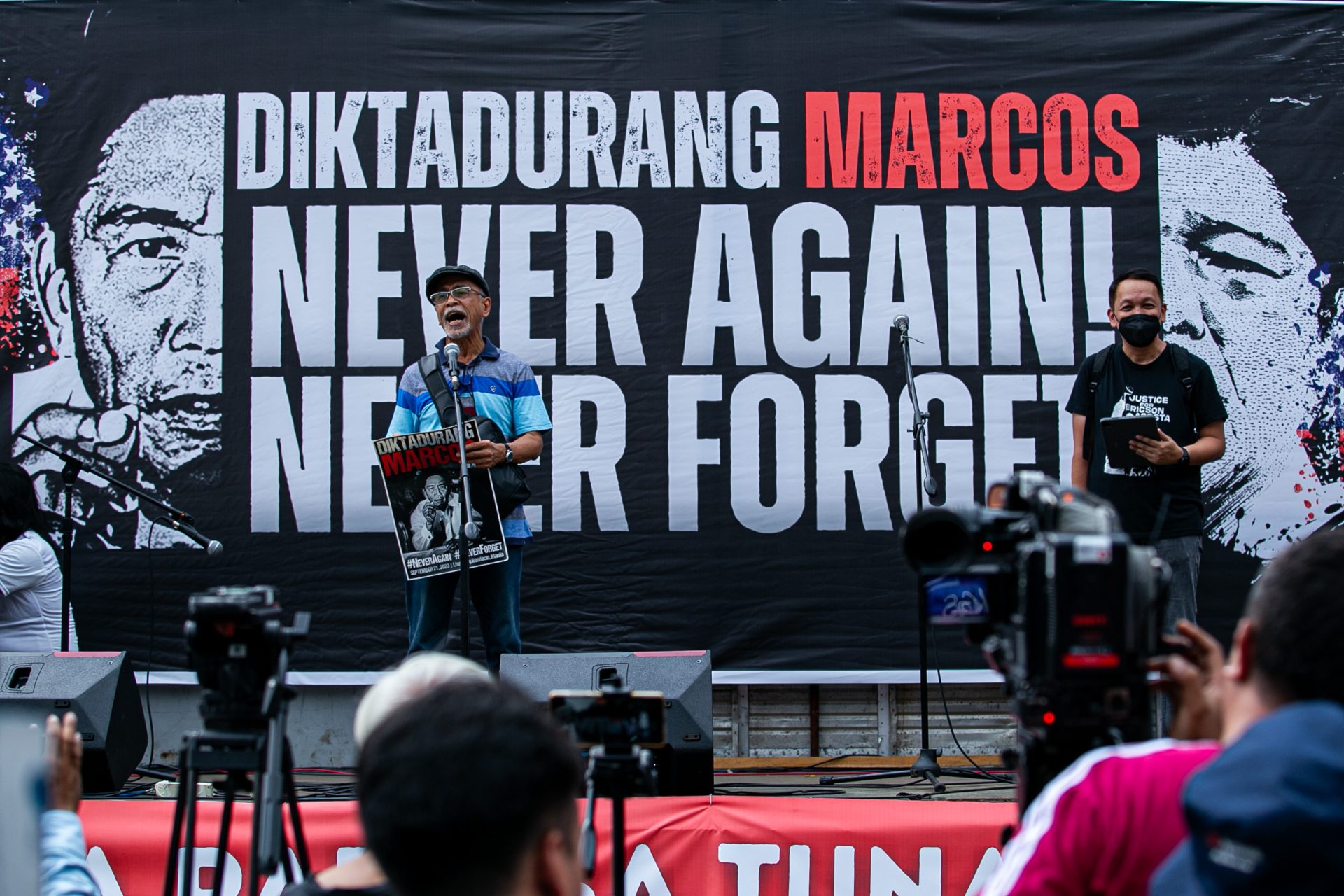Church and rights groups in the Philippines marked the 51st anniversary of the martial law declaration on September 21 with a renewed call to repeal the Anti-Terrorism Act.
The groups condemned the “weaponization” of the law, citing its ambiguous and sweeping definitions, which are used to silence dissenters.
“Incidents of attack are directed at individuals and legal organizations, including mainstream churches that are staunch advocates of human rights, truth, justice, and the integrity of creation,” the Redemptorist Congregation stated in a press release.
The Catholic congregation likened President Ferdinand Marcos Jr.’s administration to his father’s military rule in the 1970s, asserting that human rights violations “continue,” and abductions and killings are still “occurring.”
In 1985, Redemptorist Father Rosaleo “Rudy” Romano, a dedicated human rights defender in Cebu province, was abducted by armed men in Tisa village in Cebu City and was never seen again.
On Thursday, demonstrators marched from Liwasang Bonifacio in the City of Manila to the Mendiola Peace Arch to voice their demand to scrap the controversial law, which permits surveillance of anyone suspected of terrorism without due process.
The Center for Women’s Resources (CWR) pointed out that Filipino women “continue to face the same crisis, corruption, and brutal forms of political repression,” 51 years after Marcos Sr. imposed martial law.
“In recent months, we have seen increasing cases of the use of the Anti-Terror Law against human rights defenders and activists… It has empowered authorities to label activists and human rights defenders as terrorists or enemies of the state,” said Charm Perez, executive director of the group.
Perez noted that from July 2016 to December 2022, there were 66 female victims of extrajudicial killings. She also lamented the disappearances of Loi Magbanua, Cha Pampoza, and Elgene Mungcal.
As of June 2022, CWR reported that there are 162 female political prisoners, including human rights workers, development workers, writers, peasant organizers, journalists, and youth.
“These individuals have been detained without due process, often on trumped-up charges, and are denied their basic rights while in custody,” said Perez.
The Council of Bishops of the United Church of Christ in the Philippines (UCCP) reiterated its stance “against the perpetuation of one-man rule in the country.”
UCCP has been subjected to red-baiting, vilification, and attacks under the Anti-Terrorism Act. Several bank accounts of UCCP churches have been frozen by the Anti-Money Laundering Council over alleged terrorist financing.
“The [Anti-Terrorism Act] has been used to suppress dissent from various sectors of society impacted by the iron-clad policies that justify illegal arrests, red-tagging, and the filing of trumped-up charges against individuals and institutions that serve the poor, deprived, and oppressed,” the Protestant bishops said.
